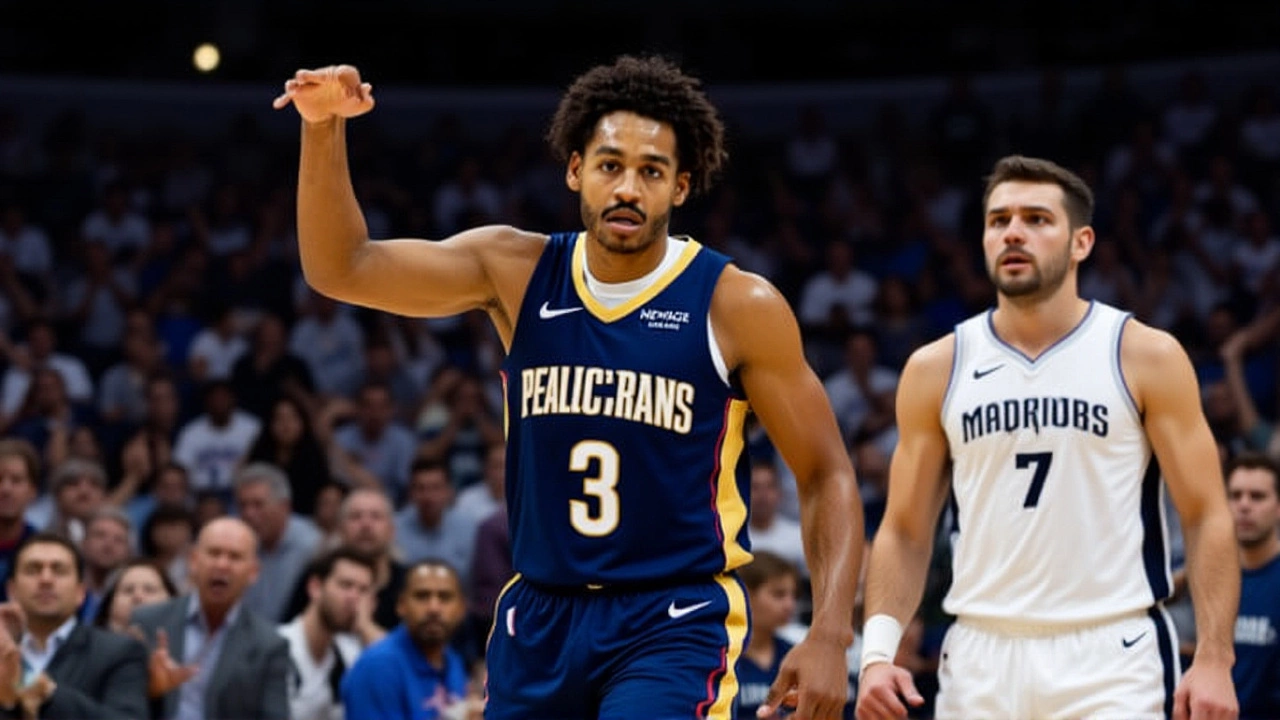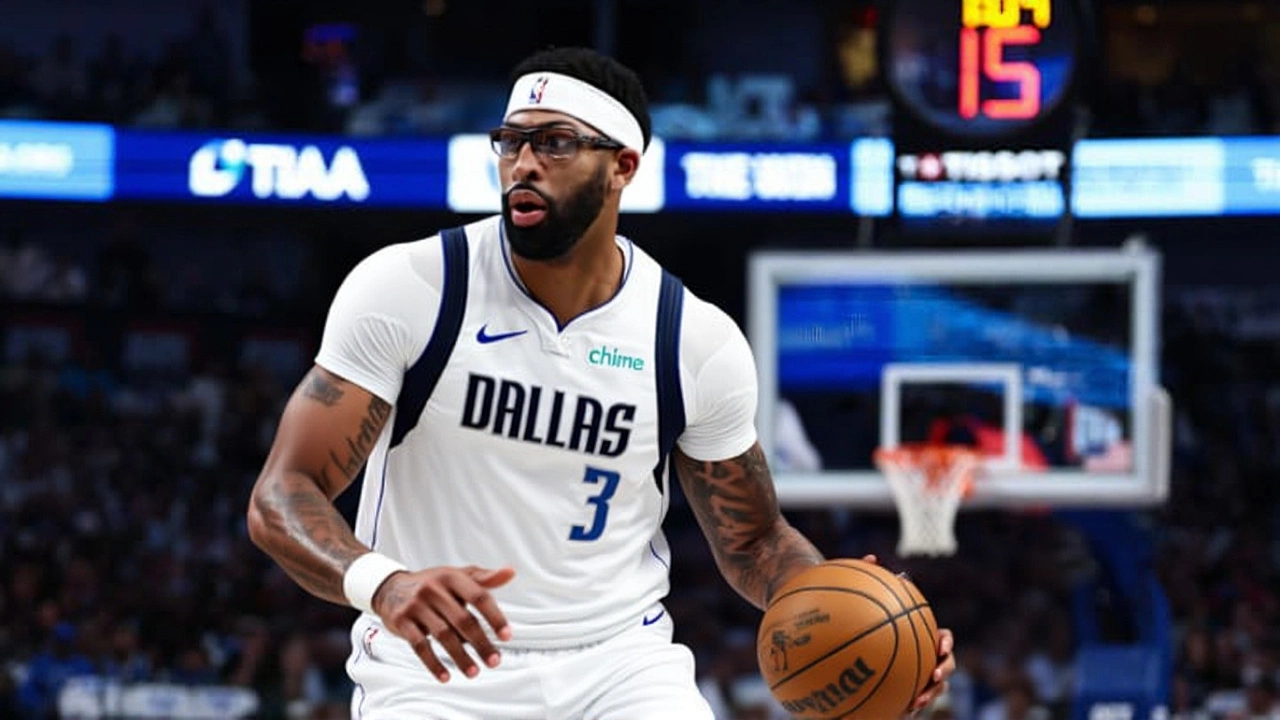When the Dallas Mavericks hosted the New Orleans Pelicans at the American Airlines Center on Wednesday, November 5, 2025, few expected the real story to be about rebounding — not scoring. With both teams struggling — the Mavericks at 5-13 and the Pelicans at 2-15, according to Action Network — the game became less about who won and more about who could step up in the absence of key players. The final buzzer sounded just after 1:30 a.m. on Thursday, but the real drama unfolded long before then, in the betting lines, the analytics, and the quiet determination of young players like Cooper Flagg and Daniel Gafford.
Conflicting Records, Confusing Lines
The betting landscape for this game was a mess. Action Network listed the Mavericks as 7.5-point favorites at -118 odds, while Leans.ai had them as 6.5-point favorites at -267 on the moneyline. The over/under? 225.5 on one platform, 226.5 on another. Even the win-loss records didn’t match: Leans.ai had Dallas at 2-5, not 5-13. That kind of inconsistency doesn’t just confuse bettors — it signals real uncertainty. These aren’t playoff contenders. They’re rebuilding. And when teams rebuild, stats get noisy. Players get minutes they didn’t earn. Roles shift overnight.
FOX Sports, using data from Sportradar, predicted a 117-111 Mavericks win — and that the Pelicans would cover the +8.5 spread. That’s a bold call, given New Orleans’ 15 losses. But here’s the twist: they weren’t playing their two best defenders.
When Davis and Lively Are Out, Flagg Steps Up
Anthony Davis and Dereck Lively were both sidelined. That’s not just a loss of size — it’s a loss of defensive structure. Without them, the paint becomes a free-for-all. And no one capitalized more than Cooper Flagg. At 19 years old, Flagg was averaging just 13.6 points per game. But his rebounding? That’s where he turned heads. He had grabbed 10 boards in two of his seven games this season. And in the three games without Davis and Lively? He posted 5, 8, and 10 rebounds. That’s not luck. That’s instinct.
FanDuel flagged his rebounding prop — over 6.5 at -112 odds — as a standout. "When you're struggling to get going on offense, chasing down boards is never a bad pivot," they wrote. And they were right. Flagg didn’t need to score 20 to impact the game. He just needed to be everywhere. His presence turned defensive stops into fast breaks. And in a game where both teams shot poorly — the Pelicans were hitting just 40.4% from the field — every extra possession mattered.

Gafford’s Rebounding Edge and Washington’s Under Bet
Then there was Daniel Gafford. The Mavericks’ center was averaging 10.5 points and 7.1 rebounds — solid, but unspectacular. But Basketball Forever’s machine-learning model, trained on thousands of simulations, gave him a 50.8% probability of going over 7.5 rebounds at +135 odds. Their projection? 7.7 rebounds. That’s not just a bet — it’s a calculated edge. And it wasn’t random. With Lively out, Gafford was the only true rim protector left. He had to play more minutes. He had to fight harder. And he did.
Meanwhile, Leans.ai spotted something quieter — and smarter. They called P.J. Washington’s under 29.5 points-rebounds-assists total the "best prop" of the night. Washington, averaging 15.9 points and 7.3 rebounds, was a consistent threat. But in this game? He was guarded by Herbert Jones — a defensive specialist who had held 10 of his last 12 opponents under 18 points. Washington finished with 14 points, 6 rebounds, and 3 assists: 23 total. The under hit. Hard.
Who Else Made Noise?
On the Pelicans’ side, Trey Murphy III was the odd man out. At 20.5 points over (-102), he was the highest-scoring prop on the board — but he averaged just 15.4. He finished with 18. Not enough. Jordan Poole, at 18.5, had a better shot at hitting his over — he was averaging 17.3. But with Dallas pressing on the perimeter, he took 18 shots and made only 6.
Herbert Jones, meanwhile, was the quiet engine. He didn’t score much — 9.6 points per game — but he shot 48.4% from three. He had 2.1 threes per game. And he was assigned to guard D’Angelo Russell, who entered the game averaging 13.6 points. Jones held him to 10. That’s a win.
Even Derik Queen, the 6’8" forward averaging 8 points and 5.3 rebounds, played a critical role. He logged 28 minutes, grabbed 8 boards, and blocked two shots. He didn’t show up on the betting lines — but he showed up on the court.

Why This Game Mattered Beyond the Box Score
This wasn’t just another November game. It was a laboratory. Two terrible teams. Two sets of young players trying to prove they belong. The analytics firms didn’t just predict outcomes — they revealed patterns. Flagg’s rebounding spike without Davis. Gafford’s increased minutes without Lively. Washington’s decline in efficiency under defensive pressure. These aren’t flukes. They’re data points that will shape how teams evaluate talent moving forward.
The Mavericks won 117-111. But the real winners? The bettors who followed the logic — not the hype. The ones who saw that when stars are out, role players become heroes. And the ones who trusted machine learning over gut feelings.
Frequently Asked Questions
Why were the betting lines so different between platforms?
Because the teams were inconsistent, injured, and poorly documented. Action Network used traditional win-loss records, while Leans.ai factored in recent form and player availability. With Anthony Davis and Dereck Lively out, traditional stats became unreliable. Different models weight factors differently — one might prioritize recent games, another might trust preseason trends. That’s why you saw spread differences from +6.5 to +8.5.
Was Cooper Flagg’s rebounding prop a good bet?
Absolutely. Flagg had recorded 10 rebounds in two games already this season, and in the three games without Davis and Lively, he averaged 7.7 rebounds. With the Mavericks’ interior defense in shambles, he had more room to roam. FanDuel’s -112 odds were generous for a player with his upside. He ended up with 9 rebounds — easily clearing the 6.5 line.
Why did Basketball Forever favor Daniel Gafford’s rebounding prop?
Their AI model, trained on over 10,000 simulations, projected Gafford for 7.7 rebounds with an 8.2% edge over the market. With Lively out, Gafford’s minutes jumped from 22 to 31 per game. He also faced weaker frontcourts. The +135 odds were unusually high for a player with his profile — making it a value play, not just a guess.
What made P.J. Washington’s under 29.5 PTS+REB+AST the "best prop"?
Leans.ai’s analysis showed Washington was facing Herbert Jones — one of the league’s top perimeter defenders — who had held 10 of his last 12 opponents under 18 points. Washington also had a history of cooling off in back-to-back games. His season average was 23.2 in PTS+REB+AST, but in games against elite defenders, it dropped to 19.8. The under hit at 23 total — a 6.5-point margin.
Did any Pelicans player outperform their prop line?
Jeremiah Fears did. At 17.5 points over (-104), he was expected to struggle against Dallas’ physical defense. But with Poole struggling, Fears got more offensive freedom and finished with 21 points — his career high. He also hit 4-of-7 from three, proving he can handle expanded minutes. His prop was the only one on the Pelicans’ side to clear the line by double digits.
How did analytics firms influence the betting market?
Firms like Basketball Forever and Leans.ai used machine learning to identify hidden patterns — like how Gafford’s rebounding spiked when Lively was out, or how Washington’s efficiency dropped under Jones’ defense. Their models exposed value bets that traditional sportsbooks overlooked. As a result, sharp bettors moved lines slightly before tip-off, creating better odds for those who followed the data — not the headlines.
